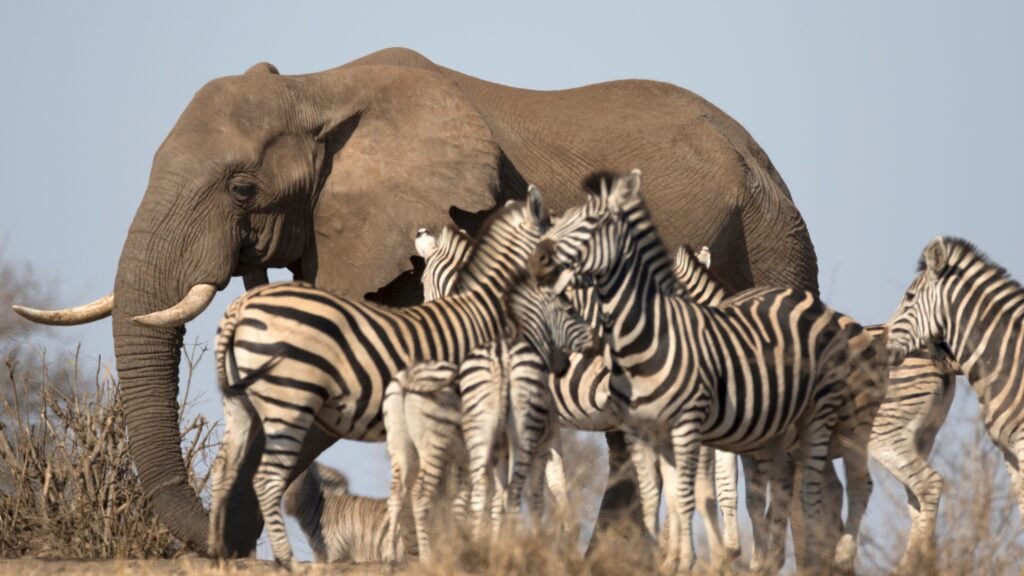Zimbabwe, Africa, is in the process of moving 2,500 wild animals because of a drought, which was made more likely by the climate crisis.
“Project Rewild Zambezi” will relocate around 400 elephants, 70 giraffes, 50 zebras, 2,000 impalas, 50 buffalos, 50 wildebeest, 50 elands, 10 lions, and a pack of 10 wild dogs, among others.
They will travel around 435 miles from the Save Valley Conservancy in the south to three conservancies in the north. These conservancies (Sapi, Matusahonha, and Chizairia) are in the Zambezi River valley.
The process is one of Africa’s biggest live animal capture and translocation exercises. Elephants will be sedated and lifted upside down into trailers, while other animals are hoarded into trailers by rangers.
Tinashe Farawo, a spokesperson for the Zimbabwe National Parks and Wildlife Management Authority, confirmed that drought has caused a lack of water in their old habitat.
He said that the park’s agency issued a permit for the animals’ relocation to prevent “a disaster from happening.”
This is the first time in 60 years that such a large internal movement of wild animals has been carried out.
In “Operation Noah,” carried out between 1958 and 1964, around 5,000 animals were removed due to rising water caused by the construction of a huge hydroelectric dam on the Zambezi River.
Drought has previously been cited as one of the major climate change-related issues that pose a threat to Zimbabwe.
Climate crisis and wildlife
The African continent only produces around 3.9 percent of the world’s greenhouse gas emissions, but its wildlife bears the brunt of the climate crisis.
According to the African Wildlife Foundation, its ecological wealth and unique natural ecosystems are “especially susceptible” to shifts in weather patterns.
This threat is compounded by large-scale developments, including oil drilling and livestock farming.
Ken Mwathe, of BirdLife International, recently said that an estimated 38 percent of Africa’s biodiversity areas are under severe threat from the climate crisis and infrastructure development.
“Key biodiversity areas over the years, especially in Africa, have been regarded by investors as idle and ready for development,” he said. “Governments allocate land in these areas for infrastructural development.”






